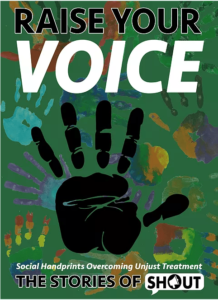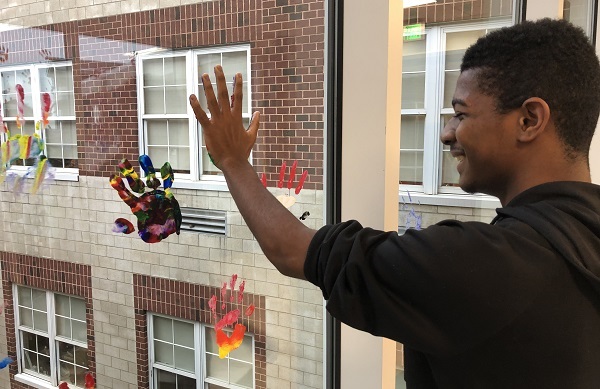
‘Raise Your Voice: The Stories of SHOUT’ promotes diversity and inclusion among Pittsburgh kids
Photo: Handprints have a special meaning for the student-led SHOUT organization. Photo courtesy of SHOUT.
For Amelya Pinami, it was about why her hair didn’t look like that of a Disney princess. For Zach Betz, it was the betrayal by a friend who revealed Zach was on the autism spectrum. Those issues left them feeling different and isolated from other students.
Amelya and Zach wrote about their experiences for “Raise Your Voice: The Stories of SHOUT,” a new book that reflects a philosophy adopted by a student-led organization at South Fayette Township School District. (Order a copy here.)
SHOUT, which stands for Social Handprints Overcoming Unjust Treatment, posits that in order to overcome footprints of exclusion from looking or being different, kids have to develop their own handprints to illustrate their value and highlight their similarities.
Through the process, says Zach, 18, “We’ve become a family. We all realized how big SHOUT can be, especially with the wild times that are going on right now. We noticed how important SHOUT can be in the world today.”
Dr. Chuck Herring, SHOUT’s advisor and the director of diversity, equity and inclusion at South Fayette, started working on the book with students during the summer of 2020. Inspired and upset by the deaths of Ahmaud Arbery, Breonna Taylor and George Floyd, Herring encouraged kids to write essays.
They initially resisted until Herring promised the book would serve as a guidebook for championing equality and inspire other students to launch similar groups in their own schools. SHOUT has already expanded to seven other school districts in the area, including Chartiers Valley, Canon-McMillan and Fox Chapel.
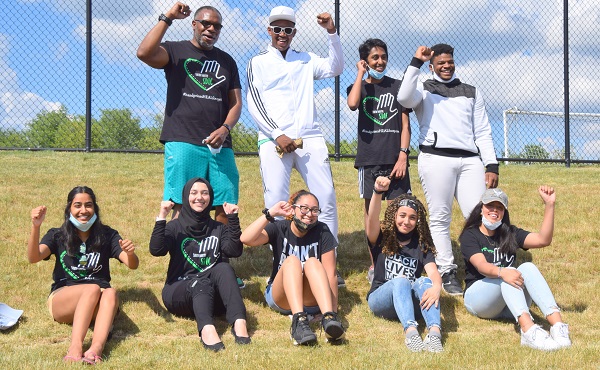
One of the most important elements of “Raise Your Voice” is how it speaks directly to adults.
“Particularly around the issues of race, gender, sexuality. When you’re dealing with that, people get very uncomfortable,” Herring says. “They get itchy. They don’t know what to say. They get tongue-tied, especially when they’re talking to other adults.
“But when they are talking to kids, because they want to support the kids, they are willing to lean into their discomfort more. And when they’re able to hear from kids, that piques their curiosity into saying, `I need to be more intentional about learning about what’s happening with these students.’ That’s a big part of why we wrote the book.”
The kids involved with SHOUT have experienced personal breakthroughs themselves.
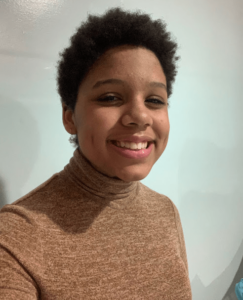
Amelya, 14, became aware of SHOUT last summer when the organization staged a Black Lives Matter rally in South Fayette. There were about 130 people at the rally and Amelya was heartened by the turnout, the voices and most of all the acceptance she saw in the community.
“Seeing that sort of thing talked about when a lot of times it’s pushed aside, and I’d say hushed or hidden,” she says, “it was amazing.”
Until then, Amelya’s hair had been a source of irritation. In her essay, It’s Just Hair, Right?, she writes that she grew to “despise” her hair: “The fact that most influential modern Black women never wore their hair naturally confirmed my insecurity.”
Amelya’s attempts to straighten her hair caused irreparable damage. In what she calls “a pivotal moment in my life,” she embraced “the big chop,” leaving just an inch of growth on her head.
“I knew that I had to be the change I wanted to see,” Amelya says. “That I was falling into these standards of having straight hair, and that wasn’t helping anyone. I wasn’t helping myself, certainly. So, I had the confidence to embrace it and, hopefully, see that reflected in others.”
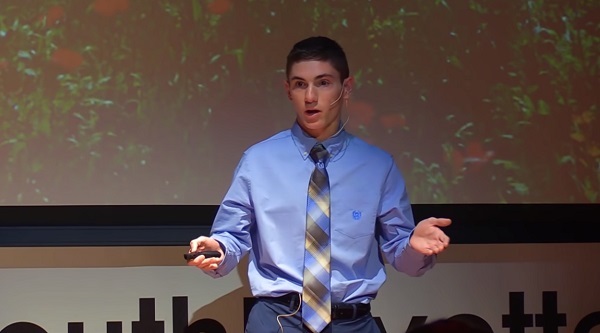
Zach’s feelings of being an outsider worsened when he was in the third grade. Until then, he’d only felt comfortable in small groups. When he told a friend that he had Asperger syndrome, a high-functioning form of autism that’s now diagnosed under the umbrella of autism spectrum disorder, the friend revealed Zach’s condition to other kids.
“The best way to describe it is kind of like a rat race,” Zach says. “It’s like being in a circle without an exit. Everybody knew I had Asperger’s. A lot of people treated it like a disease. They didn’t want to be around me, they avoided me like it was COVID-19. And that made me feel alone. I didn’t really talk to anyone.”
Zach spent most of his time in elementary and middle school isolated. But in high school, he started running on the cross-country and track team. He became a good runner, in part because of his ability to focus on what he needed to do to improve his times.
His confidence buoyed and Zach gave a TEDx Talk titled, The Benefits of Autism. Striding across a stage with the confidence of a seasoned speaker, Zach spoke sincerely of his belief that “people with autism are just as capable, if not more capable, than all of you without autism, at being successful and happy in their day-to-day lives.”
When Herring saw the TEDx Talk, he recruited Zach for SHOUT. The kid who once had a hard time making friends was suddenly part of a group that wanted him.
“When we talk about our organization, it is a social justice club,” Herring says. “But it’s really a leadership development organization. All of my students are leaders. All the students who participate in the organization are leading some way, somewhere, in the struggle to make our schools culturally relevant safe spaces for everyone.”
